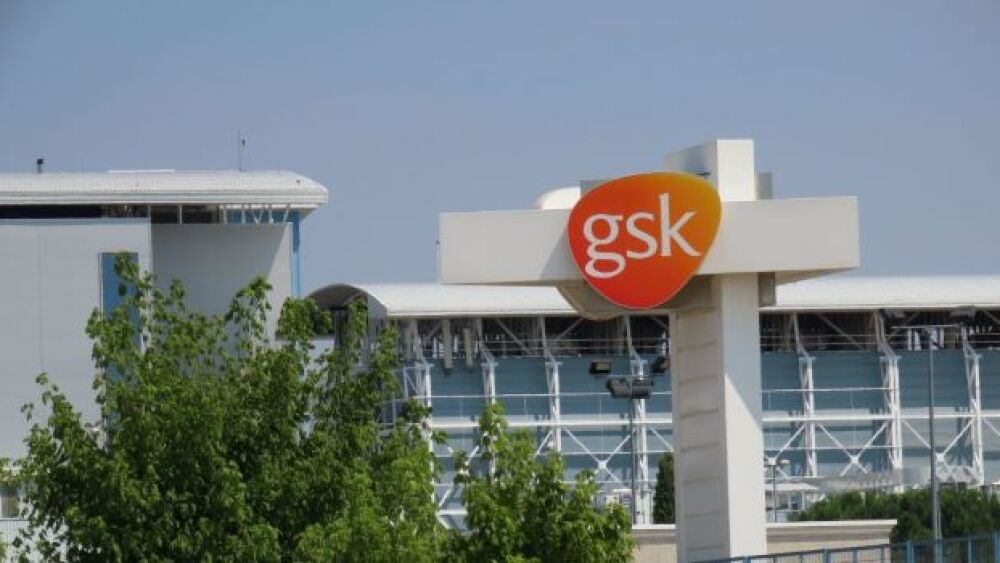Following a request from the FDA, GSK is withdrawing its multiple myeloma drug Blenrep from the U.S. market while continuing to push other combination trial programs.
Cristina Arias/Cover/Getty Images
GlaxoSmithKline is withdrawing its multiple myeloma drug Blenrep (belantamab mafodotin-blmf) from the U.S. market following a request from the FDA, the pharma giant announced Tuesday.
This decision comes just weeks after Blenrep fell short of its primary efficacy measure in the Phase III confirmatory trial DREAMM-3. GSK’s drug failed to induce significantly superior progression-free survival in patients with relapsed or refractory multiple myeloma (RRMM), as compared with pomalidomide plus low-dose dexamethasone.
Blenrep is an antibody-drug conjugate that targets the B-cell maturation antigen (BCMA), a protein crucial for the survival of plasma cells and that is highly specifically expressed by myeloma cells. Under the FDA’s Accelerated Approval pathway, the drug won its regulatory go-ahead in August 2020 as a monotherapy for adult RRMM patients who had received at least four prior lines of therapy.
Part of GSK’s responsibilities under the Accelerated Approval pathway was to conduct a Phase III confirmatory trial to verify clinical benefit demonstrated by interim data supporting Blenrep’s tentative approval. With more than 320 patients enrolled, DREAMM-3 fulfilled this obligation but failed to demonstrate significant superiority of Blenrep over the standard of care.
In a statement, Sabine Luik, chief medical officer of GSK, said the company will cooperate with the FDA. “We respect the Agency’s approach to the accelerated approval regulations and associated processes.”
Despite DREAMM-3’s failure and Blenrep’s withdrawal from the market, GSK will continue development of the drug. The company will push through with other studies under the DREAMM clinical trial program to evaluate Blenrep in combination with new, innovative therapies and with standard-of-care.
“We’ve also seen initial and promising results from the DREAMM-9, DREAMM-6, ALGONQUIN and BelaRD trials for belantamab mafodotin in combination with standard of care therapies in earlier lines of treatment,” a GSK spokesperson told BioSpace. “These data were presented at medical congresses in 2021 and earlier this year.”
Data from these additional DREAMM studies are expected early next year and will help determine Blenrep’s regulatory path forward.
Auditing Accelerated Approvals
The FDA has recently upped its scrutiny of drugs accelerated approval. In September, the Agency’s Oncologic Drugs Advisory Committee voted 14-2 against Oncopeptides in a meeting the company’s CEO Jakob Lindberg felt was “unexpectedly contagious.”
The ODAC decision was driven by the disappointing results of OCEAN trial, which found that Oncopeptide’s Pepaxto (INN melphalan flufenamide) did not have an overall favorable risk-benefit profile for patients with RRMM.
A month later, another FDA advisory committee, this time for Obstetrics Reproductive and Urologic Drugs, again voted overwhelmingly against Covis Pharma’s preterm birth drug Makena (hydroxyprogesterone caproate injection).
Citing data from the post-approval confirmatory study PROLONG, the panel of outside experts noted that “Makena has not been shown to improve neonatal outcomes from premature birth, is no longer shown to be effective for its approved use and has known risks. For these and other reasons detailed herein, Makena should be withdrawn from the market.”






